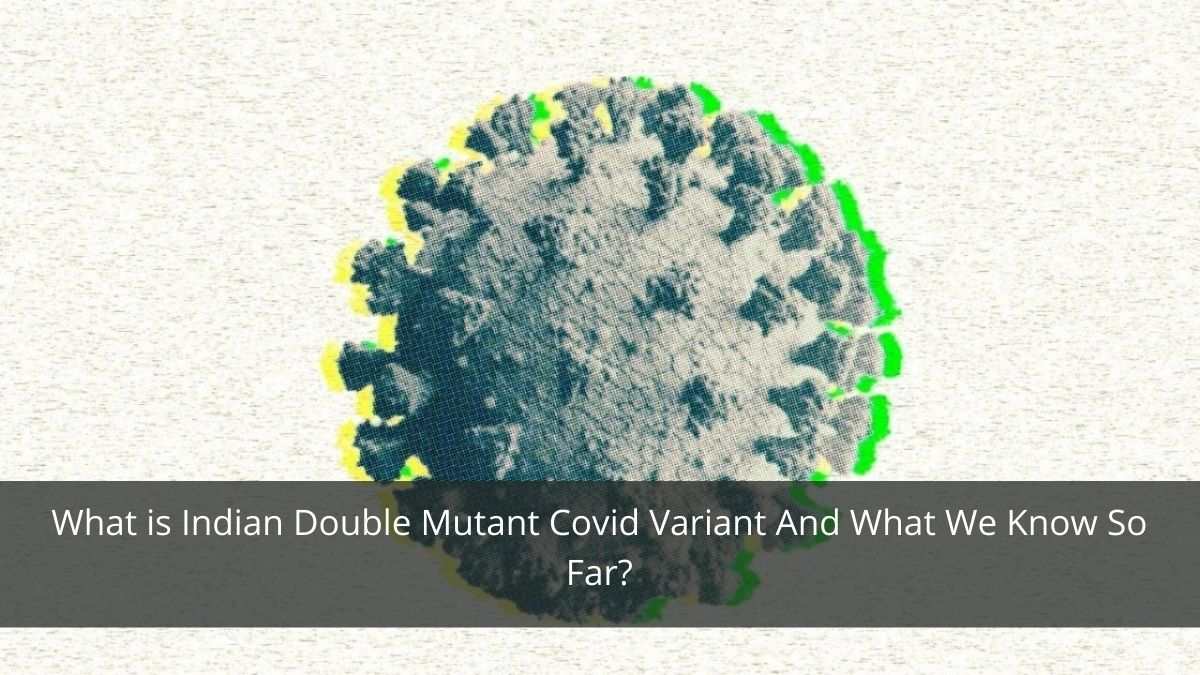Highlights:
- Covid-19 cases are on the rise in India, and a particular strain of the virus known as B.1.617 is partly held responsible for that.
- The prevalent lineage of B.1.617 was first detected in India last December
- According to WHO, it may contain mutations that make the virus more transmissible, cause more severe disease, or evade vaccine immunity.
This month, India experienced the world’s sharpest surge in coronavirus infections, with hospital beds, oxygen, and medicines running out in the political and financial capitals of New Delhi and Mumbai.
Scientists are looking into what caused the sudden increase, specifically whether a strain of the novel coronavirus first discovered in India is to blame. The version, known as B.1.617, has been found in 17 countries, causing widespread concern. Here are some basics:
What Is The Indian Variant?
According to senior Indian virologist Shahid Jameel, the B.1.617 version has two primary mutations in the outer “spike” portion of the virus that binds to human cells.
The prevalent lineage of B.1.617 was first identified in India last December, according to the World Health Organization (WHO), though an earlier variant was discovered in October 2020.
It’s been dubbed a “variant of interest” by the WHO, implying that it may contain mutations that make the virus more transmissible, cause more serious disease, or evade vaccine immunity. Other strains with known threats, such as those first discovered in the UK, Brazil, and South Africa, have been classified as “variants of concern,” posing a higher threat level.
Are Variants Causing The Increase In Cases?
It’s difficult to say as more research is urgently needed, according to the WHO. It concluded that laboratory-based experiments with limited sample size indicate increased transmissibility.
The situation is complicated by the fact that the highly transmissible B.117 variant, which was first identified in the United Kingdom, is responsible for spikes in some parts of India. According to Sujeet Kumar Singh, director of the National Centre for Disease Control in New Delhi, UK variant cases nearly doubled in the second half of March. The Indian version, on the other hand, is common in Maharashtra, the country’s hardest-hit state, according to Singh.
Also Read: Covaxin Vs Covishield: All You Need To Know Before Getting The Vaccine
The sheer magnitude of infections in India in such a short period of time, according to renowned US disease modeller Chris Murray of the University of Washington, suggests that in such populations, a “escape variant” could be overpowering any prior immunity towards natural infections.
“Which means it’s most definitely B.1.617,” he concluded. Murray cautioned, however, that gene sequencing data on the coronavirus in India is minimal, and that many cases are affected by variants found in the UK and South Africa.
Carlo Federico Perno, Head of Microbiology and Immunology Diagnostics at Rome’s Bambino Gesù Hospital, believes the Indian variant cannot be the sole cause of India’s massive increase, citing large social gatherings as a more likely explanation.
Prime Minister Narendra Modi has been chastised for allowing large-scale political rallies and religious festivals to take place in recent weeks, which have become super-spreader events.
Can Vaccine Stop It?
Vaccines can be preventive, which is good. Covaxin, a vaccine developed in India, appears capable of neutralising the variant, according to preliminary evidence from lab tests, according to White House chief medical advisor Anthony Fauci.
Public Health England said it was collaborating with international partners but that there was no indication that the Indian variant and two associated variants cause more serious disease or make current vaccines less effective.


